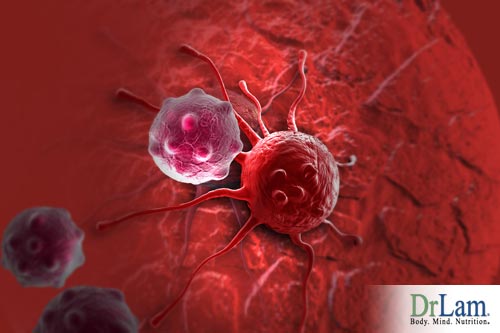 Does cancer run in your family? Have you ever wanted if you could do more to prevent cancer or reduce its harmful effects on your body? In this article, you will read about cancer fighting supplements and the positive impacts they can have. Natural cancer remedies and cancer fighting supplements should only be considered after all traditional modalities have been exhausted. No representation is made that any of the following cancer fighting supplements or information contained here will cure cancer, as we simply do not have enough scientific data. It takes years for researchers to accumulate the data. The informed mind is the best mind. The discussion presented here is for general information purposes only and not to be construed as recommendations of specific treatments. Keep reading to learn about the benefits of cancer fighting supplements.
Does cancer run in your family? Have you ever wanted if you could do more to prevent cancer or reduce its harmful effects on your body? In this article, you will read about cancer fighting supplements and the positive impacts they can have. Natural cancer remedies and cancer fighting supplements should only be considered after all traditional modalities have been exhausted. No representation is made that any of the following cancer fighting supplements or information contained here will cure cancer, as we simply do not have enough scientific data. It takes years for researchers to accumulate the data. The informed mind is the best mind. The discussion presented here is for general information purposes only and not to be construed as recommendations of specific treatments. Keep reading to learn about the benefits of cancer fighting supplements.
Cancer cells are developed in three phases:
D-Glucaric acid is a nontoxic, natural compound and may be one of the most helpful cancer fighting supplements. One of its derivatives is the potent beta-glucuronidase inhibitor (1,4-GL). 1,4-GL increases the detoxification of carcinogens and tumor promoters by inhibiting beta-glucuronidase and preventing hydrolysis of their glucuronides. 1,4-GL and its precursors such as calcium D-glucarate may exert their anti-cancer action through alterations in steroidogenesis. This is accompanied by changes in the hormonal environment and the proliferative status of the target organ. Glucarates may directly detoxify any environmental agents responsible for cancer formation. It has been postulated that D-glucarate exerts some of its effects by equilibrium conversion to D-glucarolactone, a potent beta-glucuronidase inhibitor. Laboratory studies comparing calcium glucarate (CGT) with a known chemo-preventive agent, 4-HPR during Initiation Phase (I), Promotion Phase (P), and Initiation plus Promotion Phase (I+P) together showed that CGT reduced tumor multiplicity by 28 percent, 42 percent and 63 percent for the various stages respectively as compared to 4-HPR which reduce tumor multiplicity 63 percent, 34 percent and 63 percent respectively. The maximum effect occurred during the P and I+P phases. In particular, studies showed that the chemo-preventive effect was synergistic when CGT was used together with 4-HPR.
The common intake of CGT is 100-300 mg a day.
Coenzyme Q10 is a benzoquinone compound synthesized naturally in the human body. As an immunity booster, it is a great addition to the other cancer fighting supplements available to you. The "Q" and the "10" in the name refer to the quinone chemical group and the 10 isoprenyl chemical subunits respectively that are part of this compound's structure. Coenzyme Q10 is used by cells of the body in a process known variously as aerobic respiration, aerobic metabolism, and oxidative metabolism or cell respiration.
Through this process, energy for cell growth and maintenance is created inside cells in compartments called mitochondria. The body as an endogenous antioxidant also uses coenzyme Q10.
CoQ10's cardioprotective effect is well known. The commonly used dose for optimum health is 30 to 90 mg. Those with cardiovascular disease would require higher doses. Patients with congestive heart failure usually require a much higher dose with up to 350 to 400 mg per day.
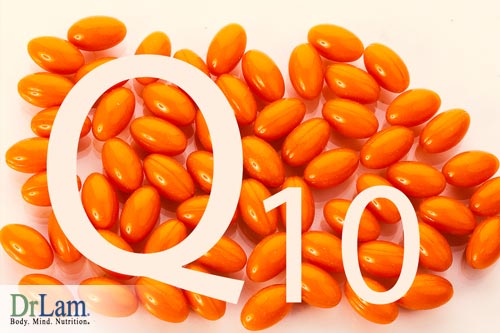 In patients with cancer, coenzyme Q10 has been shown to protect the heart from anthracycline-induced cardiotoxicity (anthracyclines are a family of chemotherapy drugs including doxorubicin that have the potential to damage the heart) and to stimulate the immune system.
In patients with cancer, coenzyme Q10 has been shown to protect the heart from anthracycline-induced cardiotoxicity (anthracyclines are a family of chemotherapy drugs including doxorubicin that have the potential to damage the heart) and to stimulate the immune system.
As one of the cancer fighting supplements studies have been done on, observations have found that blood levels of coenzyme Q10 are frequently reduced in cancer patients, supplementation with this compound has been tested in patients undergoing conventional treatment.
The use of coenzyme Q10 as a treatment for cancer and one of the better cancer fighting supplements, in humans, has been investigated in only a limited fashion. With the exception of a single randomized trial, which involved 20 patients and tested the ability of coenzyme Q10 to reduce anthracycline-induced cardiotoxicity, the studies that have been published consisted of anecdotal reports, case reports, case series and uncontrolled clinical studies.
In view of the promising results from animal studies concerning cancer fighting supplements, coenzyme Q10 was tested as a protective agent against the cardiac toxicity observed in cancer patients treated with the anthracycline drug doxorubicin.
An open-label (nonblinded), uncontrolled clinical study in Denmark followed 32 breast cancer patients for 18 months. The disease in these patients had spread to the axillary lymph nodes. An unreported number had distant metastases.
The patients received antioxidant supplementation (vitamin C, vitamin E, and beta-carotene), other vitamins and trace minerals, essential fatty acids, and coenzyme Q10 (at a dose of 90 milligrams per day). This was in addition to standard therapy (surgery, radiation therapy and chemotherapy, with or without tamoxifen). The patients were seen every three months to monitor the disease status (progressive disease or recurrence). If there were any signs of recurrence, mammography, bone scan, x-ray, or biopsy was performed.
The survival rate for the study period was 100 percent (four deaths were expected). Six patients were reported to show some evidence of remission. However, there was incomplete clinical data and information suggestive of remission was presented for only three of the six patients. None of the six patients had evidence of further metastases. For all 32 patients, the decreased use of painkillers improved quality of life and an absence of weight loss were reported. Whether painkiller use and quality of life were measured objectively (e.g., from pharmacy records and validated questionnaires, respectively) or subjectively (from patient self-reports) was not specified.
In a follow-up study, one of the six patients with a reported remission as well as a new patient was treated for several months with higher doses of coenzyme Q10 (390 and 300 milligrams per day, respectively). The surgical removal of the primary breast tumor in both patients had yet to be completed.
After three to four months of high-level coenzyme Q10 supplementation, both patients appeared to experience complete regression of their residual breast tumors (assessed by clinical examination and mammography). It should be noted that a different patient identifier was used in the follow-up study for the patient who had participated in the original study. Therefore, it is impossible to determine which of the six patients with a reported remission took part in the follow-up study. In the follow-up study report, the researchers noted that all 32 patients from the original study remained alive after 24 months of observation while six deaths had been expected.
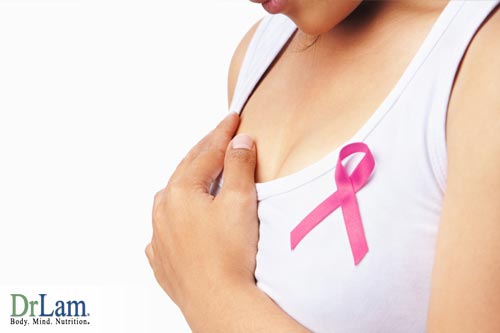 In another report by the same investigators concerning cancer fighting supplements, three breast cancer patients were followed for a total of three to five years on high-dose coenzyme Q10 (390 milligrams per day). One patient posted a complete remission of liver metastases (assessed by clinical examination and ultrasonography [echogram]) and another had a remission of a tumor that had spread to the chest wall (assessed by clinical examination and chest X-ray). The third patient had no microscopic evidence of the remaining tumor after a mastectomy (assessed by biopsy of the tumor bed).
In another report by the same investigators concerning cancer fighting supplements, three breast cancer patients were followed for a total of three to five years on high-dose coenzyme Q10 (390 milligrams per day). One patient posted a complete remission of liver metastases (assessed by clinical examination and ultrasonography [echogram]) and another had a remission of a tumor that had spread to the chest wall (assessed by clinical examination and chest X-ray). The third patient had no microscopic evidence of the remaining tumor after a mastectomy (assessed by biopsy of the tumor bed).
All three of the above-mentioned human studies had important design flaws that could have influenced their outcome. Study weaknesses include the absence of a control group (i.e., all patients received coenzyme Q10), possible selection bias in the follow-up investigations, and multiple confounding variables (i.e., the patients received a variety of supplements in addition to coenzyme Q10, and they received standard therapy either during or immediately before supplementation with coenzyme Q10).
Due to its cardio protective effect, coenzyme Q10 is a good nutritional supplement for cancer prevention. Food alone does not supply enough coenzyme Q10. Those who have no cancer should consider 30-90 mg a day for optimum health. Much higher doses should be considered for cancer patients.
Cancer patients should be on a strict vegetarian diet. Whey protein is often used as a source of protein to supplement the diet and as one of several cancer fighting supplements.
Protein powders are useful to the diet, as they are high-quality proteins minus the saturated fats that frequently accompany foods that are high in protein.
The Biological Value, or BV, of a protein is an indicator of the quality of the protein. It is a measure of a protein's ability to be used by the body (or its bioavailability). It is a percentage (though the scale is skewed resulting in some BV's of greater than 100) of the absorbed protein that your body actually uses. Biological Values are indicators of which proteins are best at aiding nitrogen retention in muscles to help them maintain or grow in mass. The BV of whey protein (hydrolyzed) is higher than milk, fish, beef, soy, wheat, beans, and peanuts.
Nobel laureate in medicine Otto Warburg, Ph.D.,and one who has studies cancer fighting supplements, first discovered in 1931 that cancer cells have a fundamentally and significantly different energy metabolism compared to healthy cells. In his Nobel thesis, Dr. Warburg postulated that malignant tumors frequently exhibit an increase in anaerobic glycolysis - a process whereby glucose is used as a fuel by cancer cells with lactic acid as an anaerobic byproduct. In fact, the coefficient of anaerobic glycolysis to cell respiration in normal tissue is zero, while in malignant tissue the ratio is up to 12.
Many studies concerning cancer fighting supplements have been conducted to validate this theory. A study using a mouse model of human breast cancer demonstrated that tumors are sensitive to blood-glucose levels. Sixty-eight mice were injected with an aggressive strain of breast cancer. They were then fed diets to induce either high blood sugar (hyperglycemia), normal, or low blood sugar (hypoglycemia). There was a dose-dependent response in which the lower the blood glucose level, the greater the survival rate. After 70 days, eight of the 24 hyperglycemic mice survived compared to 16 of 24 normal glycemic and 19 of 20 hypoglycemic mice. This suggests that the restriction of sugar intake is the key to slowing the effects of breast tumors.
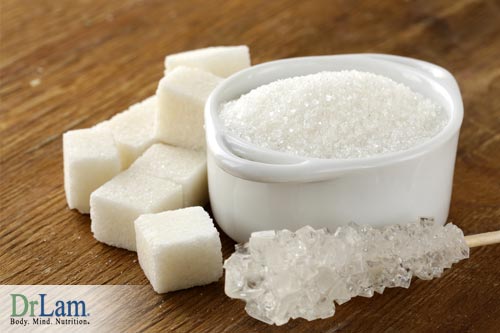 Another study of four years at the National Institute of Public Health and Environmental Protection in the Netherlands compared 111 biliary tract cancer patients with 480 controls. The cancer risk associated with the intake of sugars is more than doubled for the cancer patients. Another epidemiological study in 21 modern countries including Europe, North America, and Japan that keep track of morbidity and mortality revealed that sugar intake is a strong risk factor that contributes to higher breast cancer rates.
Another study of four years at the National Institute of Public Health and Environmental Protection in the Netherlands compared 111 biliary tract cancer patients with 480 controls. The cancer risk associated with the intake of sugars is more than doubled for the cancer patients. Another epidemiological study in 21 modern countries including Europe, North America, and Japan that keep track of morbidity and mortality revealed that sugar intake is a strong risk factor that contributes to higher breast cancer rates.
All cancer patients should be maintained on a low sugar diet. A strict controlled supply of glucose, regarded as cancer's preferred fuel, would slow down the effects of cancer. The quest is not to eliminate sugars or carbohydrates from the diet but to control blood glucose within a narrow range to help starve the cancer cells and bolster immune functions.
Hyperthermia is the application of concentrated therapeutic heat to treat cancer.
In a slight transition from cancer fighting supplements will look at some cancer-fighting treatments that are more natural than that of chemotherapy. In order to increase the temperature of the entire body (whole body hyperthermia, employing sauna-like chambers) or to local areas with tumors or metastasized sites (local or regional hyperthermia, using probes or focused emitting devices); various methods were employed including strong infrared radiation to cancerous areas. The patient's core temperature is raised up to 103° F and local areas even higher. As cancer cells are far more exposed to heat than healthy cells, it damages the enzymes, the membranes, and particularly the DNA of cancer cells. Since cancer cells need their own blood supply to grow into tumors, strong blood vessels are necessary. However, when heated to 103°F, they shrivel up. Thus, when their blood supply is cut off, tumor cells die. Tumor areas are heated between 107°F and 113° F - temperatures that are below the normal pain threshold.
Improvement depends on many factors such as the site and stage of cancer, the age of the patient, immune resistance, and tumor response rate have been reported which varies from 40 percent to 80 percent depending on location. This treatment modality is used extensively in Europe. One cancer treatment concept utilizing this is the Systemic Cancer Multistep Therapy (SCMT). The SCMT protocol using hyperthermia is used as part of a "Trojan Horse" concept where the body is subjected to a hyperglycemic state to encourage cancer cell proliferation with subsequent hyperthermia to kill the proliferated cancer cells. Medical evidence indicates that hyperthermia does not interfere with the immune system but may, in fact, stimulate it.
With the use of computerized equipment to emit electromagnetic energy into patients, which matches the vibratory frequencies of elements within the body, healthy biological functioning is amplified, weakened, or neutralized by toxins or pathogens. The mechanism works by which all the atoms make up cells, which radiate energy with their aggregate thus creating a signature oscillation pattern. As the cancer cells differ from healthy cells in unique vibratory frequencies, radio waves are set to resonate with these frequencies and thus harming the cancer cells.
While the use of this therapy spans over 15 years by selected proponents, it is still very controversial as one of the cancer fighting supplements of due to the lack of scientific research studies.
Let's continue to the final piece of our discussion concerning cancer fighting supplements. When water is given a magnetic charge, hydrogen micro clusters are produced, which react with oxygen (O2) to create sodium hydroxide (NaOH). The water's pH is therefore raised thus making it more alkaline. Normally, the body's normal pH is 7.4. By drinking enough magnetic resonance water, it can increase the alkalinity of blood with a low pH of 7.2 to 7.6. (MRW also has 50 percent less surface tension than non-charged water, allowing it to permeate into cells more easily). As cancer cells grow rapidly in the more acidic environment, their growth is inversely proportional to the alkalinity of the blood and intracellular fluids. Thus, drinking alkalinizing water and maintaining an alkalinizing diet make the body inhospitable for cancer. This is a simple yet effective way to subdue cancer cell multiplication. (A low-sugar vegetarian diet can further increase the blood's alkalinity, up to 7.8).
This is another alternative method that needs much more research to be validated as do many of the more natural routs concerning cancer fighting supplements.
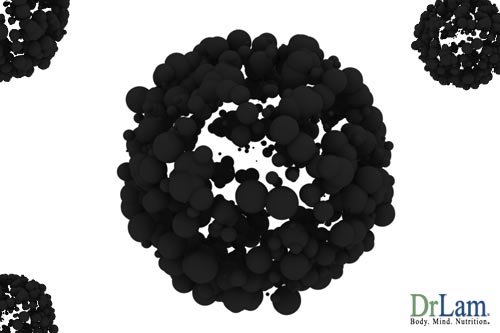 Cancer is a dreaded disease. But the use of cancer fighting supplements may offer some if not many a better way to survive and thrive. It is the end result of a combination of factors, including emotional, nutritional, poisons, drugs, infections, genetics, and pollutants. Genetics and free radicals are two primary theories of how cancer develops. Recognizing that cancer is a multi-factorial disease, prevention and treatment requires a pro-active approach using a wide variety of both traditional and non-traditional modalities.
Cancer is a dreaded disease. But the use of cancer fighting supplements may offer some if not many a better way to survive and thrive. It is the end result of a combination of factors, including emotional, nutritional, poisons, drugs, infections, genetics, and pollutants. Genetics and free radicals are two primary theories of how cancer develops. Recognizing that cancer is a multi-factorial disease, prevention and treatment requires a pro-active approach using a wide variety of both traditional and non-traditional modalities.
Everyone should be concerned with cancer prevention and cancer fighting supplements can help with this process. Many of the alternatives described here are for cancer prevention such as antioxidants, coenzyme Q10, and calcium D glucarate. Once cancer is detected, the same modalities continue to be used, but in higher dosages. New modalities are added as indicated.None of these natural cancer remedies are meant to replace the traditional treatments. In cases where traditional treatments have nothing to offer, these alternatives may be considered.
Those pursuing the alternative approach either as replacement or adjunct to traditional treatments will learn quickly that often a "shot gun" deployment of various modalities in a joint and concerted approach is the best method to maximize the chance of killing cancer cells. Do not attempt any such alternatives without consulting a knowledgeable physician.
© Copyright 2013 Michael Lam, M.D. All Rights Reserved.
